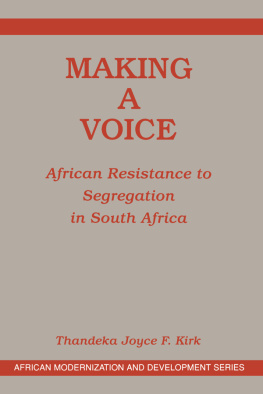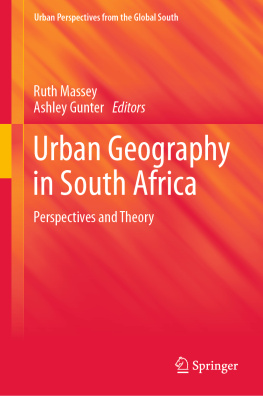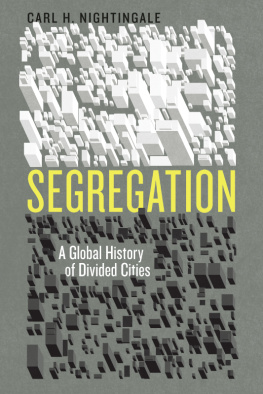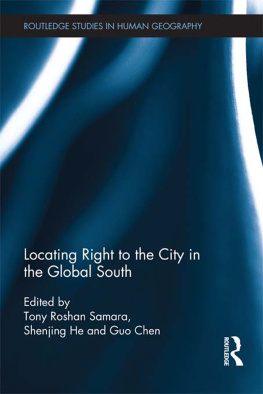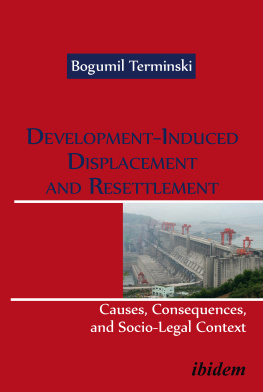This open access publication has been enabled by the support of POLLUX (Fachinformationsdienst Politikwissenschaft)
and a collaborative network of academic libraries for the promotion of the Open Access transformation in the Social Sciences and Humanities (transcript Open Library Politikwissenschaft 2020)
This publication is compliant with the Recommendations on quality standards for the open access provision of books, Nationaler Open Access Kontaktpunkt 2018 (https://pub.uni-bielefeld.de/record/2932189)
Universittsbibliothek Bayreuth | Universittsbibliothek der Humboldt-Universitt zu Berlin | Staatsbibliothek zu Berlin | Universittsbibliothek FU Berlin | Universittsbibliothek Bielefeld (University of Bielefeld) | Universittsbibliothek der Ruhr-Universitt Bochum | Universitts- und Landesbibliothek | Schsische Landesbibliothek - Staats- und Universittsbibliothek Dresden | Universittsbibliothek Duisburg-Essen | Universitts- u. Landesbibliothek Dsseldorf | Universittsbibliothek Erlangen-Nrnberg | Universittsbibliothek Johann Christian Senckenberg | Universittsbibliothek Gieen | Niederschsische Staats- und Universittsbibliothek Gttingen | Universittsbibliothek Graz | Universittsbibliothek der FernUniversitt in Hagen | Martin-Luther-Universitt Halle-Wittenberg | Staats- und Universittsbibliothek Carl von Ossietzky, Hamburg | Technische Informationsbibliothek Hannover | Gottfried Wilhelm Leibniz Bibliothek - Niederschsische Landesbibliothek | Universittsbibliothek Kassel| Universitts- und Stadtbibliothek Kln | Universitt Konstanz, Kommunikations-, Informations-, Medienzentrum | Universittsbibliothek Koblenz-Landau | Universittsbibliothek Leipzig | Zentral- u. Hochschulbibliothek Luzern | Universittsbibliothek Mainz| Universittsbibliothek Marburg | Ludwig-Maximilians-Universitt Mnchen Universittsbibliothek | Max Planck Digital Library | Universitts- und Landesbibliothek Mnster | Universittsbibliothek Oldenburg| Universittsbibliothek Osnabrck| Universittsbibliothek Passau | Universittsbibliothek Potsdam | Universittsbibliothek Siegen | Universittsbibliothek Vechta | Universittsbibliothek der Bauhaus-Universitt Weimar | Universittsbibliothek Wien | Universittsbibliothek Wuppertal| Universittsbibliothek Wrzburg| Zentralbibliothek Zrich | Bundesministerium der Verteidigung - Bibliothek | Landesbibliothek Oldenburg
Sara Dehkordi, is a lecturer at the Department of Political and Social Sciences at the Freie Universitt Berlin. She teaches postcolonial and decolonial theories, on colonial genocide, the Negritude and Black Consciousness Movement, neoliberal urbanism, and critical peace and conflict studies. She has received the German Tiburtius Prize for outstanding research for her work leading to the book Segregation, Inequality, and Urban Development.
Sara Dehkordi
Segregation, Inequality, and Urban Development
Forced Evictions and Criminalisation Practices in Present-Day South Africa
D188
Bibliographic information published by the Deutsche Nationalbibliothek
The Deutsche Nationalbibliothek lists this publication in the Deutsche Nationalbibliografie; detailed bibliographic data are available in the Internet at http://dnb.d-nb.de
This work is licensed under the Creative Commons Attribution 4.0 (BY) license, which means that the text may be be remixed, transformed and built upon and be copied and redistributed in any medium or format even commercially, provided credit is given to the author. For details go to http://creativecommons.org/licenses/by/4.0/
Creative Commons license terms for re-use do not apply to any content (such as graphs, figures, photos, excerpts, etc.) not original to the Open Access publication and further permission may be required from the rights holder. The obligation to research and clear permission lies solely with the party re-using the material.
First published in 2020 by transcript Verlag, Bielefeld
Sara Dehkordi
Cover layout: Maria Arndt, Bielefeld
Cover illustration: Sara Dehkordi: The ruins of the evicted pensioners houses in Pontac, Nelson and Aspeling Street - District Sx, Cape Town Printed by Majuskel Medienproduktion GmbH, Wetzlar
Print-ISBN 978-3-8376-5310-6
PDF-ISBN 978-3-8394-5310-0
EPUB-ISBN 978-3-7328-5310-6
https://doi.org/10.14361/9783839453100
Inhalt
To the memory of Siyamthanda Betana and Nuri Dehkordi who were murdered,
and Thabiso Betana and Maziar Dehkordi who died whereas they could have lived.
Acknowledgements
This book is indebted to the inputs, analyses, theoretical discussions and attentive criticism of many. I would like to start with Mrs. Magdalene George, Jerome Daniels and Faeza Meyer Fouri. Their openness and analyses of their struggles, the ways in which they relate to their communities and their recalling of their memories allowed me to develop the analysis of this study. Their words lived with me throughout the years. Their resoluteness and above all, their power of endurance, will remain a life-time reminder of fight and hope. Their critical stance towards the role of research and researchers have essentially shaped the books entire approach. This study would have been impossible without our conversations and the amount of what I have learned from them.
Heidi Grunebaum has shaped and challenged this work over almost six years. The time she invested in our conversations and the ways in which she supervised the work throughout all its critical stages, cannot be compensated. Especially the methodology this book undertook has been thoroughly influenced by her painstakingly deconstructing imprecise assumptions, use of sources and theoretical framings. Ulrike Schultzs extensive and committed supervision is irreplaceable for the direction this book undertook. Her straightforwardness and and at the same time, humanness, became the most productive sources. Oddveig Nicole Sarmiento accompanied this work from its very beginning. Conversations with her contributed to various frameworks and concepts. I remain indebted to her guidance and intellectual generosity she invested down through the years. Sara Abbass patience and analytical interventions made me rethink the books structure and use of method and has influenced my whole understanding of the themes I was working on. I am deeply grateful for her sincere friendship. Countless conversations with Ilham Rawoot have enabled a whole set of subjects related to exclusion and criminalisation to impact this work. I do not want to miss one single of them. Ala Hourani has enriched this work in many different ways. To list all of them is impossible, although it would make the reader sincerely laugh, because his humour is a gift to anyone who wants to learn how making fun of ourselves releases the uptightness that our everyday imposes on us. His scholarly input and ways of articulation has made me rethink many of my own fixed notions and paradigms. Donovan Wards contributions in conversations and discussions and his commitment to the themes this book focuses on, tremendously helped the idea of this book to emerge. My deepest gratitude to his analysis and humbleness in all these years. From Xolile Masoqoza I learned the anti-apartheid struggle songs. His tireless commitment has, I think without him knowing, helped me through the different stages of this work. Sabelo Mcinzibas political analysis has strongly influenced the angle from which the books themes were chosen. I cannot thank him enough for our theoretical debates. I also would like to express my profound respect and gratitude to Andreas Feldtkeller. His motivating words have enabled me to continue at times when I became doubtful.



